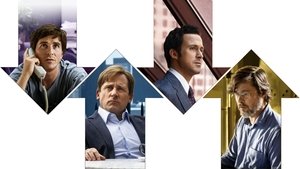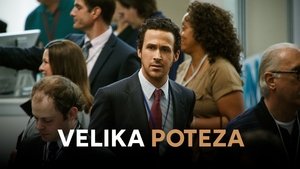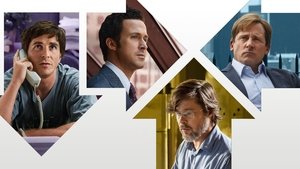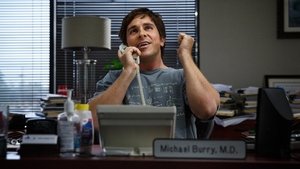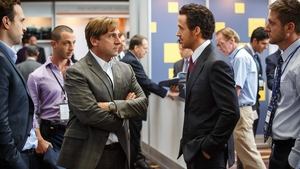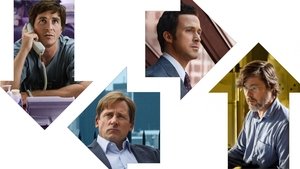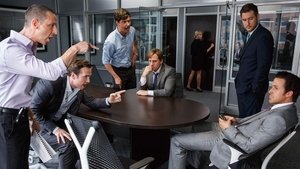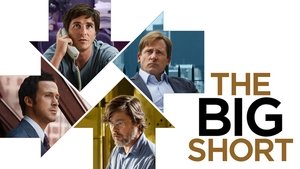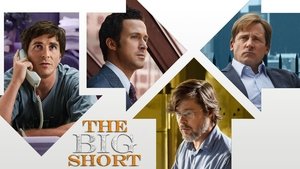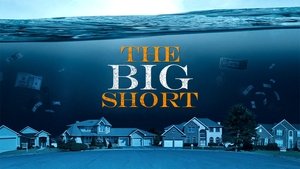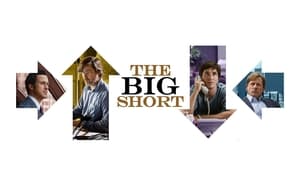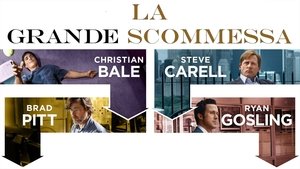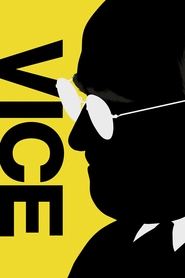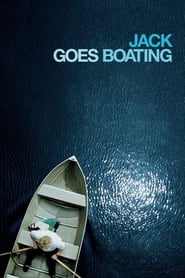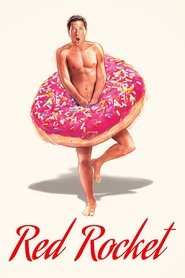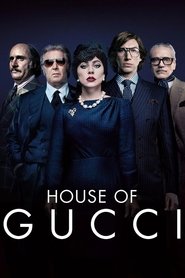With every new 2015 cinematic release, insiders and prognosticators are seeking a standout film to swoop in and take over the Best Picture race. In steps Adam McKay's potential contender, The Big Short, a star-studded examination of the United States' economic meltdown following the 2008 housing market collapse. But in a bit of a twist, McKay isn't known for his dramatic appeal. In fact, the director has built quite the reputation as a comedy guru following his synergetic film-partnership with Will Ferrell in collaborations such as Anchorman, Talladega Nights, Step Brothers and The Other Guys. Yet, perhaps McKay's humerus touch could be exactly the spark needed to jump-start this Oscar tailspin.
Back in 2005 hedge fund manager Michael Burry (Christian Bale) recognized a dangerous trend in the United States housing market. And when he uses his full contractual authority to go against the wishes of his clients and bet against the power of the highly regarded banking system, word of his antics quietly spreads around Wall Street. While most insiders laugh off the possibility of a structural breakdown, other money managers and investors such as Mark Baum (Steve Carell), Jamie Shipley and Charlie Geller look beneath the surface of the markets and bravely follow in Burry's footsteps.

Adam McKay deserves copious amounts of respect as he achieves the remarkable feat of transforming dull and monotonous source material into a laugh-filled and enjoyable affair. The Big Short succeeds on many levels and, at its finest moments, uses unorthodox narrative techniques to capture the audience's attention and hold it firmly for two plus hours. Be on the lookout for hysterical cameos from rising star and Australian beauty Margot Robbie, Chef extraordinaire Anthony Bourdain and pop-sensation Selena Gomez, all of which cleverly address the film's nauseating banking and mortgage lingo in a spry and comical way. Furthermore, Steve Carell follows up his Oscar nominated turn in Foxcatcher with another exceptional performance. His cynical character is highlighted perfectly through the constant back and forth with bank trader, Jared Vennett, played by a typically charismatic Ryan Gosling. But through all of these impressive turns, it's Christian Bale's supporting work that stands out as the most likely to land in the awards season discussion. All in all The Big Short is a winning drama benefiting from outside-the box storytelling, a sturdy comical undertone and fine acting from its entire cast.

However, despite all of the film's glowing attributes and valiant attempts to withstand such boring source material, the inner workings of the financial and housing markets are an irrefutable turnoff. Industry verbiage and terminology prove to be inescapable as they bog down an otherwise hilarious screenplay and, to varying degrees, wear down the viewer. After repeatedly hearing phrases like "sub-prime mortgages" and "collateralized debt obligations (CDOs)" at nearly every turn for over two hours, disinterest inevitably settles in. Yet, just as The Big Short begins to test its audience's patience, the movie's self-aware director recognizes an urgency to wrap up the story. Hitting a wall is unavoidable, but McKay and company are able to withstand the film's own self-restricting limitations.
We all know a family or families impacted by the irresponsible actions of our banks and lenders during the economic collapse of 2008. The dark realities of this historical blunder are enough to warrant a dramatic retelling of such events. Adam McKay does an admirable job of oversimplifying a complicated situation and the result is an often hysterical and well-acted account of American greed. The Big Short is far from the Oscar frontrunner that many were desiring, but it's still a journey worth taking.
-
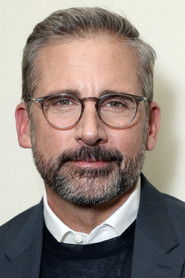 NameSteve CarellCharacterMark Baum
NameSteve CarellCharacterMark Baum -
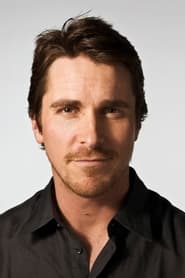 NameChristian BaleCharacterMichael Burry
NameChristian BaleCharacterMichael Burry -
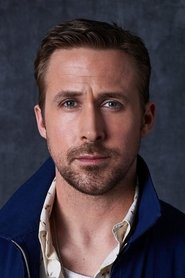 NameRyan GoslingCharacterJared Vennett
NameRyan GoslingCharacterJared Vennett -
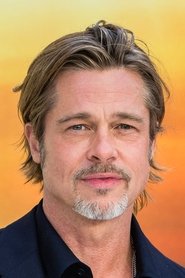 NameBrad PittCharacterBen Rickert
NameBrad PittCharacterBen Rickert -
 NameMarisa TomeiCharacterCynthia Baum
NameMarisa TomeiCharacterCynthia Baum -
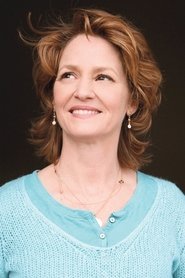 NameMelissa LeoCharacterGeorgia Hale
NameMelissa LeoCharacterGeorgia Hale -
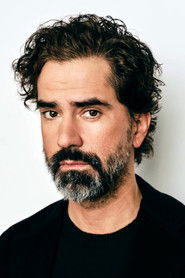 NameHamish LinklaterCharacterPorter Collins
NameHamish LinklaterCharacterPorter Collins -
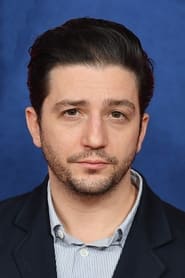 NameJohn MagaroCharacterCharlie Geller
NameJohn MagaroCharacterCharlie Geller -
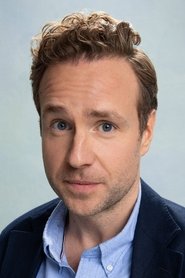 NameRafe SpallCharacterDanny Moses
NameRafe SpallCharacterDanny Moses -
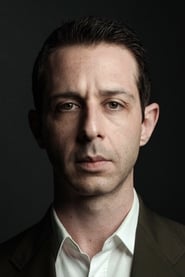 NameJeremy StrongCharacterVinny Daniel
NameJeremy StrongCharacterVinny Daniel -
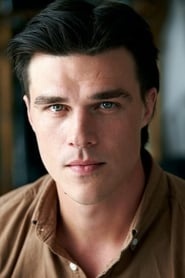 NameFinn WittrockCharacterJamie Shipley
NameFinn WittrockCharacterJamie Shipley -
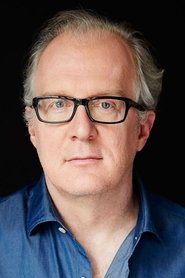 NameTracy LettsCharacterLawrence Fields
NameTracy LettsCharacterLawrence Fields -
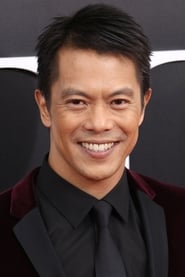 NameByron MannCharacterMr. Chau
NameByron MannCharacterMr. Chau -
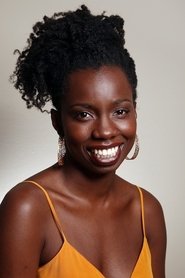 NameAdepero OduyeCharacterKathy Tao
NameAdepero OduyeCharacterKathy Tao -
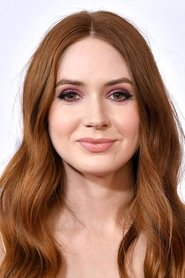 NameKaren GillanCharacterEvie
NameKaren GillanCharacterEvie -
 NameMax GreenfieldCharacterMortgage Broker
NameMax GreenfieldCharacterMortgage Broker -
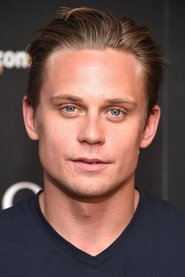 NameBilly MagnussenCharacterMortgage Broker
NameBilly MagnussenCharacterMortgage Broker -
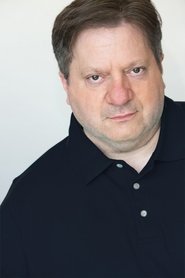 NameRudy EisenzopfCharacterLewis Ranieri
NameRudy EisenzopfCharacterLewis Ranieri -
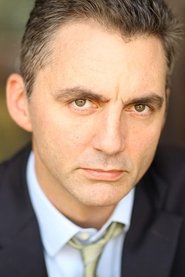 NameCasey GrovesCharacterFund Manager
NameCasey GrovesCharacterFund Manager -
 NameCharlie TalbertCharacterLewis Bond Trader
NameCharlie TalbertCharacterLewis Bond Trader -
 NameHarold GervaisCharacterLewis Bond Trader
NameHarold GervaisCharacterLewis Bond Trader -
 NameMaria FrangosCharacterExotic Dancer
NameMaria FrangosCharacterExotic Dancer -
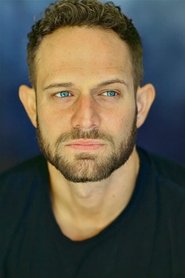 NameHunter BurkeCharacterAnalyst
NameHunter BurkeCharacterAnalyst -
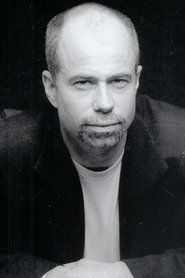 NameBernard HockeCharacterCoach
NameBernard HockeCharacterCoach -
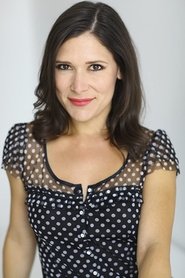 NameShauna RappoldCharacterMichael Burry's Mom
NameShauna RappoldCharacterMichael Burry's Mom -
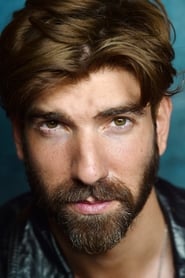 NameBrandon StacyCharacterMichael Burry's Dad
NameBrandon StacyCharacterMichael Burry's Dad -
 NameAiden FlowersCharacterYoung Michael Burry
NameAiden FlowersCharacterYoung Michael Burry -
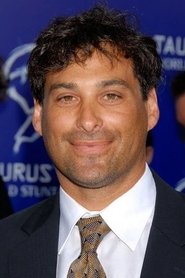 NamePeter EpsteinCharacterPaul Baum
NamePeter EpsteinCharacterPaul Baum -
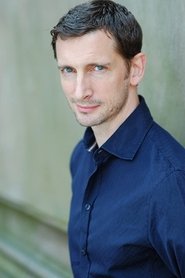 NameAnthony MarbleCharacterTherapy Businessman
NameAnthony MarbleCharacterTherapy Businessman -
 NameSilas CooperCharacterTherapy Businessman
NameSilas CooperCharacterTherapy Businessman -
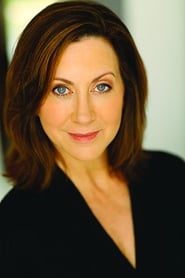 NameLeslie CastayCharacterTherapist
NameLeslie CastayCharacterTherapist -
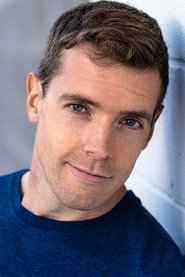 NameAndrew FarrierCharacterBurry's Analyst
NameAndrew FarrierCharacterBurry's Analyst -
 NameIngrid SteedCharacterLawrence Fields' Assistant
NameIngrid SteedCharacterLawrence Fields' Assistant -
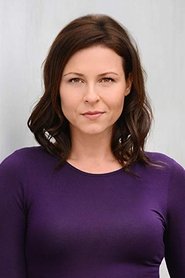 NameVanessa ClokeCharacterGoldman Sachs Sales Rep (Lucy)
NameVanessa ClokeCharacterGoldman Sachs Sales Rep (Lucy) -
 NameDavid ZalkindCharacterRabbi
NameDavid ZalkindCharacterRabbi -
 NameCarrie LazarCharacterMark Baum's Mom
NameCarrie LazarCharacterMark Baum's Mom -
 NameMychael BatesCharacterMan Stealing Cab
NameMychael BatesCharacterMan Stealing Cab -
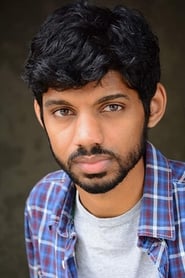 NameRajeev JacobCharacterGoldman Sachs Quant (Deeb)
NameRajeev JacobCharacterGoldman Sachs Quant (Deeb) -
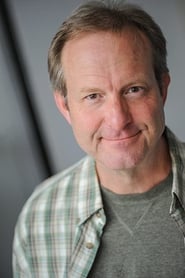 NameJay PotterCharacterDeutsche Sales Rep
NameJay PotterCharacterDeutsche Sales Rep -
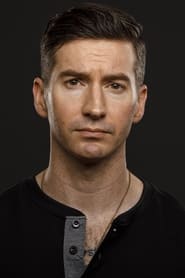 NameGarrett HinesCharacterDeutsche Sales Rep
NameGarrett HinesCharacterDeutsche Sales Rep -
 NameRyan BroussardCharacterTrader at Night Club
NameRyan BroussardCharacterTrader at Night Club -
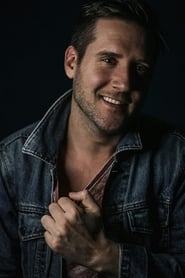 NameJeffry GriffinCharacterJared's Assistant (Chris)
NameJeffry GriffinCharacterJared's Assistant (Chris) -
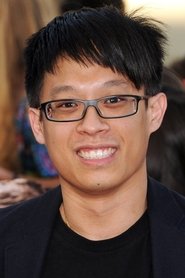 NameStanley WongCharacterTed Jiang
NameStanley WongCharacterTed Jiang -
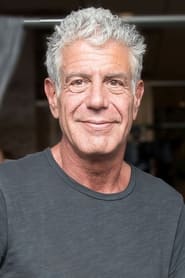 NameAnthony BourdainCharacterSelf
NameAnthony BourdainCharacterSelf -
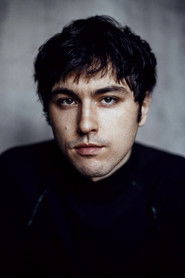 NameJoseph BrooksCharacterBanker at Goldman Sachs
NameJoseph BrooksCharacterBanker at Goldman Sachs -
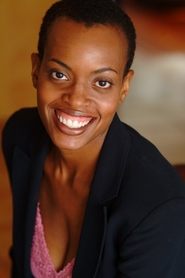 NameColette DivineCharacterB of A Lobby Security
NameColette DivineCharacterB of A Lobby Security -
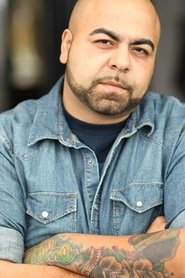 NameOscar GaleCharacterTattooed Renter
NameOscar GaleCharacterTattooed Renter -
 NameCayden Arthur MiscallyCharacterTattooed Man's Son
NameCayden Arthur MiscallyCharacterTattooed Man's Son -
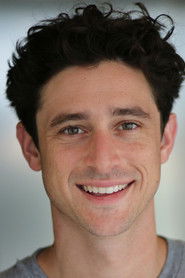 NameDave DavisCharacterBurry's Assistant
NameDave DavisCharacterBurry's Assistant -
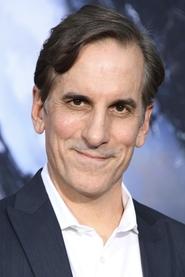 NameWayne PéreCharacterMartin Blaine
NameWayne PéreCharacterMartin Blaine -
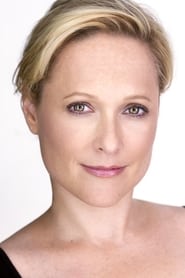 NameKate BlumbergCharacterReal Estate Agent
NameKate BlumbergCharacterReal Estate Agent -
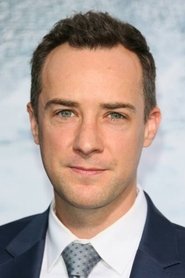 NameBilly SlaughterCharacterReal Estate Agent
NameBilly SlaughterCharacterReal Estate Agent -
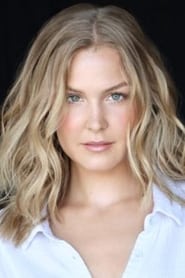 NameHeighlen BoydCharacterFlorida Strip Club Dancer
NameHeighlen BoydCharacterFlorida Strip Club Dancer -
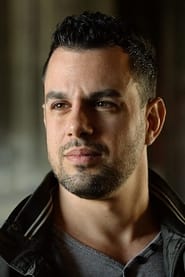 NameIlan MuallemCharacterNoah
NameIlan MuallemCharacterNoah -
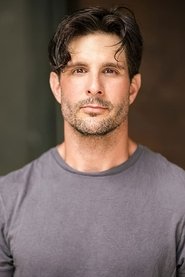 NameJay JablonskiCharacterRich Bear Rep (Matt)
NameJay JablonskiCharacterRich Bear Rep (Matt) -
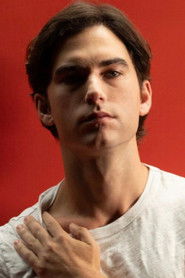 NameBlaine Kern IIICharacterSecond Bear Rep
NameBlaine Kern IIICharacterSecond Bear Rep -
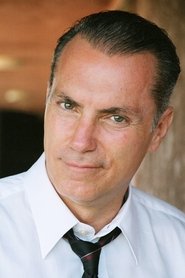 NameAl SapienzaCharacterOption One CEO
NameAl SapienzaCharacterOption One CEO -
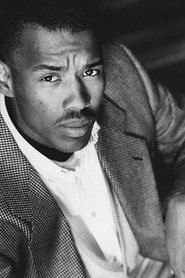 NameMarcus Lyle BrownCharacterMerrill Lynch Rep
NameMarcus Lyle BrownCharacterMerrill Lynch Rep -
 NameTyler KunkleCharacterDoug from Goldman Sachs
NameTyler KunkleCharacterDoug from Goldman Sachs -
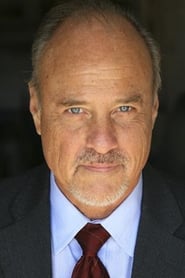 NameElliott GreyCharacterMontage Lehman Rep
NameElliott GreyCharacterMontage Lehman Rep -
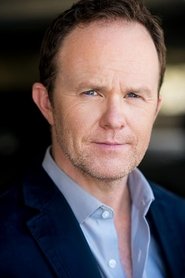 NameJason BayleCharacterMontage Goldman Sachs Rep
NameJason BayleCharacterMontage Goldman Sachs Rep -
 NameRichard ThalerCharacterSelf
NameRichard ThalerCharacterSelf -
 NameSophie LeeCharacterWoman in Glasses
NameSophie LeeCharacterWoman in Glasses -
 NameMichael Aaron SantosCharacterBusinessman at Casino
NameMichael Aaron SantosCharacterBusinessman at Casino -
 NameDavid KallawayCharacterGuy in Game Jersey
NameDavid KallawayCharacterGuy in Game Jersey -
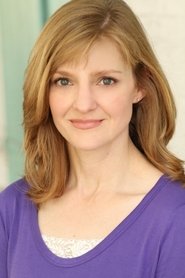 NameSharon LandryCharacterWoman at Casino
NameSharon LandryCharacterWoman at Casino -
 NameJames YeargainCharacterFields' Lawyer
NameJames YeargainCharacterFields' Lawyer -
 NameLyle BrocatoCharacterCasey
NameLyle BrocatoCharacterCasey -
 NameKelly LindCharacterFront Point Receptionist
NameKelly LindCharacterFront Point Receptionist -
 NameMichael BrooksCharacterAngry Guy on the Phone
NameMichael BrooksCharacterAngry Guy on the Phone -
 NameLyndsay KimballCharacterDiner Waitress
NameLyndsay KimballCharacterDiner Waitress -
 NameRobyn WholeyCharacterSpin Class Instructor
NameRobyn WholeyCharacterSpin Class Instructor -
 NameDavid WymanCharacterPub Goer
NameDavid WymanCharacterPub Goer -
 NamePeter AndersonCharacterPub Goer
NamePeter AndersonCharacterPub Goer -
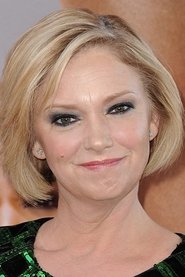 NameLara GriceCharacterDeutsche Auditorium Host
NameLara GriceCharacterDeutsche Auditorium Host -
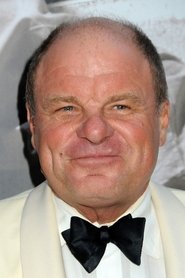 NameTony BentleyCharacterBruce Miller
NameTony BentleyCharacterBruce Miller -
 NameMichael KivesCharacterBanker in Deutsche Auditorium
NameMichael KivesCharacterBanker in Deutsche Auditorium -
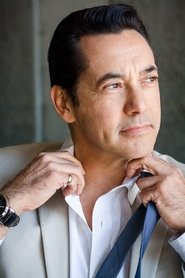 NameJack MillardCharacterLehman Executive
NameJack MillardCharacterLehman Executive -
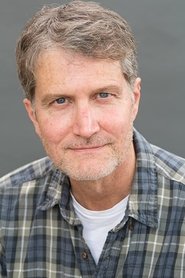 NameJohn NeislerCharacterSeminar Leader
NameJohn NeislerCharacterSeminar Leader -
 NameMichael Joseph VarinoCharacter35 to 1 Guy
NameMichael Joseph VarinoCharacter35 to 1 Guy -
 NameJoel DiggsCharacterCab Driver
NameJoel DiggsCharacterCab Driver -
 NameMichael J. SteinCharacterBanker 1979
NameMichael J. SteinCharacterBanker 1979 -
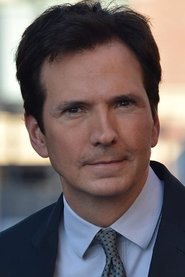 NameLogan CrawfordCharacterNews Reporter
NameLogan CrawfordCharacterNews Reporter -
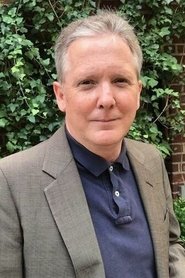 NameTim WilsonCharacterLehman Employee
NameTim WilsonCharacterLehman Employee -
 NameJae Suh ParkCharacterMichael Burry's Wife
NameJae Suh ParkCharacterMichael Burry's Wife -
 NameColin LawlessCharacterNicolas Burry
NameColin LawlessCharacterNicolas Burry -
 NameSelena GomezCharacterSelf
NameSelena GomezCharacterSelf -
 NameMargot RobbieCharacterSelf
NameMargot RobbieCharacterSelf -
 NameSue-Lynn AnsariCharacterSwimmer (uncredited)
NameSue-Lynn AnsariCharacterSwimmer (uncredited) -
 NameNicole BarréCharacterWoman at Party (uncredited)
NameNicole BarréCharacterWoman at Party (uncredited) -
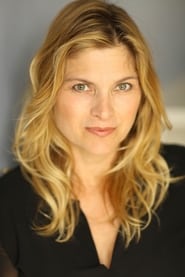 NameAlicia Davis JohnsonCharacterBank of America Executive (uncredited)
NameAlicia Davis JohnsonCharacterBank of America Executive (uncredited) -
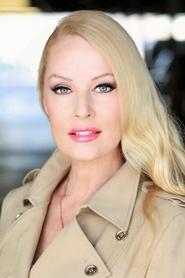 NameDelia SheppardCharacterBarclays Bank Professional (uncredited)
NameDelia SheppardCharacterBarclays Bank Professional (uncredited) -
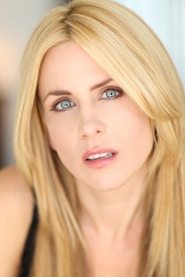 NameJuliet Reeves LondonCharacterFront Point Receptionist (uncredited)
NameJuliet Reeves LondonCharacterFront Point Receptionist (uncredited) -
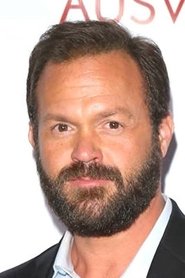 NameJudd LormandCharacterLawyer (uncredited)
NameJudd LormandCharacterLawyer (uncredited)
-
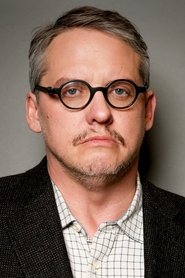 NameAdam McKayJobDirector
NameAdam McKayJobDirector -
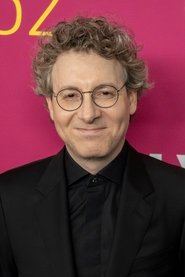 NameNicholas BritellJobOriginal Music Composer
NameNicholas BritellJobOriginal Music Composer -
 NameJean-Paul BernardJobGrip
NameJean-Paul BernardJobGrip -
 NameAdam McKayJobScreenplay
NameAdam McKayJobScreenplay -
 NamePeter EpsteinJobStunts
NamePeter EpsteinJobStunts -
 NameBarry AckroydJobDirector of Photography
NameBarry AckroydJobDirector of Photography -
 NameCharles RandolphJobScreenplay
NameCharles RandolphJobScreenplay -
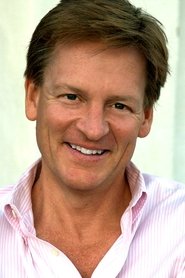 NameMichael LewisJobBook
NameMichael LewisJobBook -
 NameKathy Driscoll-MohlerJobCasting
NameKathy Driscoll-MohlerJobCasting -
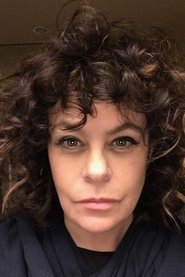 NameFrancine MaislerJobCasting
NameFrancine MaislerJobCasting -
 NameClayton HartleyJobProduction Design
NameClayton HartleyJobProduction Design -
 NameElliott GlickJobArt Direction
NameElliott GlickJobArt Direction -
 NameLouise Rosner-MeyerJobExecutive Producer
NameLouise Rosner-MeyerJobExecutive Producer -
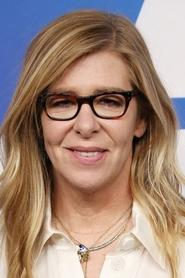 NameDede GardnerJobProducer
NameDede GardnerJobProducer -
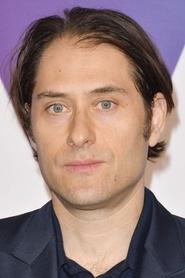 NameJeremy KleinerJobProducer
NameJeremy KleinerJobProducer -
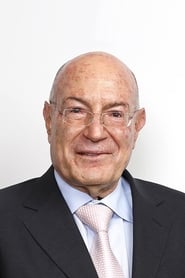 NameArnon MilchanJobProducer
NameArnon MilchanJobProducer -
 NameBrad PittJobProducer
NameBrad PittJobProducer -
 NameJodi Michelle PynnJobStunts
NameJodi Michelle PynnJobStunts -
 NameLinda Lee SuttonJobSet Decoration
NameLinda Lee SuttonJobSet Decoration -
 NameCate HardmanJobScript Supervisor
NameCate HardmanJobScript Supervisor -
 NameAnna BehlmerJobSound Re-Recording Mixer
NameAnna BehlmerJobSound Re-Recording Mixer -
 NameTerry PorterJobSound Re-Recording Mixer
NameTerry PorterJobSound Re-Recording Mixer -
 NameJohn FinkleaJobMusic Editor
NameJohn FinkleaJobMusic Editor -
 NameK. Emily LevineJobArt Department Coordinator
NameK. Emily LevineJobArt Department Coordinator -
 NameSusan MathesonJobCostume Design
NameSusan MathesonJobCostume Design -
 NameMichelle DicksonJobSpecial Effects Coordinator
NameMichelle DicksonJobSpecial Effects Coordinator -
 NameDrew JiritanoJobSpecial Effects Coordinator
NameDrew JiritanoJobSpecial Effects Coordinator -
 NameMare McIntoshJobVisual Effects Producer
NameMare McIntoshJobVisual Effects Producer -
 NameWayne BillheimerJobVisual Effects Producer
NameWayne BillheimerJobVisual Effects Producer -
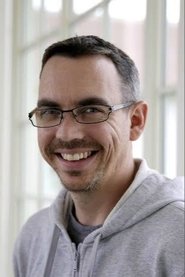 NameRichard BluffJobVisual Effects Supervisor
NameRichard BluffJobVisual Effects Supervisor -
 NamePaul LindenJobVisual Effects Supervisor
NamePaul LindenJobVisual Effects Supervisor -
 NameTim ArashebenJobCamera Operator
NameTim ArashebenJobCamera Operator -
 NameAndy DayJobGaffer
NameAndy DayJobGaffer -
 NameMarkus MentzerJobFirst Assistant Camera
NameMarkus MentzerJobFirst Assistant Camera -
 NameTom BoydJobUnderwater Camera
NameTom BoydJobUnderwater Camera -
 NamePatrick CaponeJobAdditional Photography
NamePatrick CaponeJobAdditional Photography -
 NameElaine PerlmannJobAssistant Costume Designer
NameElaine PerlmannJobAssistant Costume Designer -
 NameMeghan CornayJobAssistant Costume Designer
NameMeghan CornayJobAssistant Costume Designer -
 NameBeverley WoodsJobCostume Supervisor
NameBeverley WoodsJobCostume Supervisor -
 NameNatasha RomanowJobSet Costumer
NameNatasha RomanowJobSet Costumer -
 NameGayle WesleyJobFirst Assistant Sound Editor
NameGayle WesleyJobFirst Assistant Sound Editor -
 NameAndy MalcolmJobFoley
NameAndy MalcolmJobFoley -
 NameAndrew DeCristofaroJobSound Designer
NameAndrew DeCristofaroJobSound Designer -
 NameJohn MorrisJobSound Effects Editor
NameJohn MorrisJobSound Effects Editor -
 NameBecky SullivanJobSupervising Sound Editor
NameBecky SullivanJobSupervising Sound Editor -
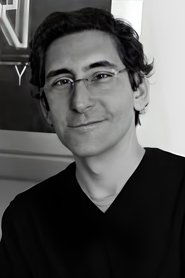 NameDylan FirsheinJobFirst Assistant Editor
NameDylan FirsheinJobFirst Assistant Editor -
 NameKen O'KeefeJobFirst Assistant Editor
NameKen O'KeefeJobFirst Assistant Editor -
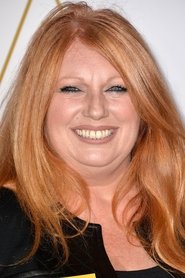 NameAdruitha LeeJobHair Department Head
NameAdruitha LeeJobHair Department Head -
 NameSarah StampJobKey Hair Stylist
NameSarah StampJobKey Hair Stylist -
 NameMichelle DiamantidesJobKey Hair Stylist
NameMichelle DiamantidesJobKey Hair Stylist -
 NameJulie HewettJobMakeup Department Head
NameJulie HewettJobMakeup Department Head -
 NameAnnabelle MacNealJobMakeup Artist
NameAnnabelle MacNealJobMakeup Artist -
 NamePamela S. WestmoreJobMakeup Artist
NamePamela S. WestmoreJobMakeup Artist -
 NameJillian EricksonJobMakeup Artist
NameJillian EricksonJobMakeup Artist -
 NameAlex PerroneJobWigmaker
NameAlex PerroneJobWigmaker -
 NameMichelle C. HarmonJobAssistant Art Director
NameMichelle C. HarmonJobAssistant Art Director -
 NameKristin LekkiJobAssistant Art Director
NameKristin LekkiJobAssistant Art Director -
 NameRandall S. CoeJobConstruction Coordinator
NameRandall S. CoeJobConstruction Coordinator -
 NameCarl MastioJobGreensman
NameCarl MastioJobGreensman -
 NameJoe BergmanJobLeadman
NameJoe BergmanJobLeadman -
 NameJann K. EngelJobSet Designer
NameJann K. EngelJobSet Designer -
 NameChris ArnoldJobSet Designer
NameChris ArnoldJobSet Designer -
 NameWright McFarlandJobSet Designer
NameWright McFarlandJobSet Designer -
 NameDayton NietertJobGaffer
NameDayton NietertJobGaffer -
 NameLarry CottrillJobRigging Gaffer
NameLarry CottrillJobRigging Gaffer -
 NameAnthony KeatingJobProduction Assistant
NameAnthony KeatingJobProduction Assistant -
 NameHank CorwinJobEditor
NameHank CorwinJobEditor -
 NameKevin J. MessickJobExecutive Producer
NameKevin J. MessickJobExecutive Producer -
 NameRobyn WholeyJobCo-Producer
NameRobyn WholeyJobCo-Producer -
 NameMychael BatesJobProperty Master
NameMychael BatesJobProperty Master -
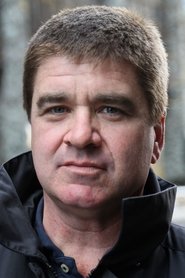 NameBlaise CorriganJobStunts
NameBlaise CorriganJobStunts -
 NameLaura Harris AtkinsonJobDialogue Editor
NameLaura Harris AtkinsonJobDialogue Editor -
 NameDarren Sunny WarkentinJobDialogue Editor
NameDarren Sunny WarkentinJobDialogue Editor -
 NameCraig BotesJobDialogue Editor
NameCraig BotesJobDialogue Editor -
 NameSumriti BhogalJobProduction Manager
NameSumriti BhogalJobProduction Manager -
 NameTeddy AuJobProduction Supervisor
NameTeddy AuJobProduction Supervisor -
 NameLouise Rosner-MeyerJobUnit Production Manager
NameLouise Rosner-MeyerJobUnit Production Manager -
 NameBlumes TracyJobSpecial Effects Supervisor
NameBlumes TracyJobSpecial Effects Supervisor -
 NameMatt RebenkoffJobFirst Assistant Director
NameMatt RebenkoffJobFirst Assistant Director -
 NameWilliam BarkusJobCompositor
NameWilliam BarkusJobCompositor -
 NameWayne BillheimerJobVisual Effects Production Manager
NameWayne BillheimerJobVisual Effects Production Manager -
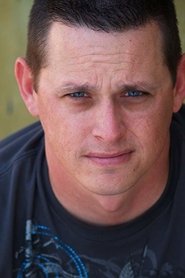 NameChris J. FanguyJobStunt Coordinator
NameChris J. FanguyJobStunt Coordinator -
 NameSteven J. WinslowJobAerial Camera Technician
NameSteven J. WinslowJobAerial Camera Technician -
 NameErik A. ErichsenJobLighting Technician
NameErik A. ErichsenJobLighting Technician -
 NameSteve MartemucciJobConstruction Foreman
NameSteve MartemucciJobConstruction Foreman -
 NameStacy MoonJobPost Production Assistant
NameStacy MoonJobPost Production Assistant -
 NameHeather HaywardJobLocation Scout
NameHeather HaywardJobLocation Scout -
 NameAlex AcunaJobMusician
NameAlex AcunaJobMusician -
 NameRoger WoogeJobDriver
NameRoger WoogeJobDriver -
 NameTom MooreJobTransportation Captain
NameTom MooreJobTransportation Captain -
 NameMike BrantJobProduction Coordinator
NameMike BrantJobProduction Coordinator -
 NameFrancie BrownJobDialect Coach
NameFrancie BrownJobDialect Coach -
 NameKirby AdamsJobExecutive in Charge of Finance
NameKirby AdamsJobExecutive in Charge of Finance -
 NameJohn LavisJobSet Medic
NameJohn LavisJobSet Medic -
 NameRachel AndrewJobProduction Accountant
NameRachel AndrewJobProduction Accountant -
 NameSpooky StevensJobUnit Publicist
NameSpooky StevensJobUnit Publicist -
 NameDustin BewleyJobSet Production Assistant
NameDustin BewleyJobSet Production Assistant -
 NameKim MaitlandJobSound Recordist
NameKim MaitlandJobSound Recordist -
 NameHenry Bauer IVJobStand In
NameHenry Bauer IVJobStand In -
 NameArt BartelsJobKey Grip
NameArt BartelsJobKey Grip -
 NameDan McKeeJobLoader
NameDan McKeeJobLoader -
 NameLiza D. EspinasJobAdditional Editor
NameLiza D. EspinasJobAdditional Editor -
 NameAli MyersJobVisual Effects Coordinator
NameAli MyersJobVisual Effects Coordinator -
 NameKimberly HustonJobVisual Effects Editor
NameKimberly HustonJobVisual Effects Editor -
 NameJill PazJobCostume Assistant
NameJill PazJobCostume Assistant -
 NameMinh DangJobCostume Coordinator
NameMinh DangJobCostume Coordinator -
 NameMaura 'Maude' CusickJobCostumer
NameMaura 'Maude' CusickJobCostumer -
 NameLisa D. QuercioliJobKey Costumer
NameLisa D. QuercioliJobKey Costumer -
 NameMustapha MimisJobKey Set Costumer
NameMustapha MimisJobKey Set Costumer -
 NamePaul PitaloJobOn Set Dresser
NamePaul PitaloJobOn Set Dresser -
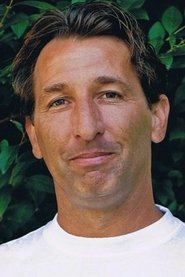 NameGeorge B. Colucci Jr.JobStunts
NameGeorge B. Colucci Jr.JobStunts -
 NameShannon JantzJobTruck Costumer
NameShannon JantzJobTruck Costumer -
 NameAmy LauritsenJobSecond Assistant Director
NameAmy LauritsenJobSecond Assistant Director -
 NameCali PomésJobSecond Second Assistant Director
NameCali PomésJobSecond Second Assistant Director -
 NameTravis BarnhartJobElectrician
NameTravis BarnhartJobElectrician -
 NameScott M. AndersonJobAssistant Property Master
NameScott M. AndersonJobAssistant Property Master -
 NameChristopher M. FisherJobFirst Assistant "B" Camera
NameChristopher M. FisherJobFirst Assistant "B" Camera -
 NameJaap BuitendijkJobStill Photographer
NameJaap BuitendijkJobStill Photographer -
 NameTracy Morris JohnsonJobSet Dressing Buyer
NameTracy Morris JohnsonJobSet Dressing Buyer -
 NameLawrnell Bell-RattlerJobHairstylist
NameLawrnell Bell-RattlerJobHairstylist -
 NameLouise McCarthyJobKey Makeup Artist
NameLouise McCarthyJobKey Makeup Artist -
 NameRyan LeBlancJobGreensman
NameRyan LeBlancJobGreensman -
 NameRonald D. CastleberryJobPainter
NameRonald D. CastleberryJobPainter -
 NameChere TheriotJobSet Decoration Buyer
NameChere TheriotJobSet Decoration Buyer -
 NameIsidoro AvilaJobSet Dresser
NameIsidoro AvilaJobSet Dresser -
 NameDavid JobeJobFoley Mixer
NameDavid JobeJobFoley Mixer -
 NameStephen MuirJobFoley Recordist
NameStephen MuirJobFoley Recordist -
 NameTim KimmelJobFoley Supervisor
NameTim KimmelJobFoley Supervisor -
 NameJustin Kane MillerJobSpecial Effects Technician
NameJustin Kane MillerJobSpecial Effects Technician -
 NameKristina TruongJobVisual Effects Production Assistant
NameKristina TruongJobVisual Effects Production Assistant -
 NameDavid FerdigJobLocation Manager
NameDavid FerdigJobLocation Manager -
 NameJohn C. Hoffler Jr.JobAdditional Second Assistant Camera
NameJohn C. Hoffler Jr.JobAdditional Second Assistant Camera -
 NameBetsy LindellJobBoom Operator
NameBetsy LindellJobBoom Operator -
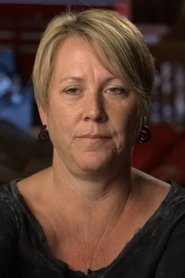 NameDawn FintorJobFoley Artist
NameDawn FintorJobFoley Artist -
 NameMichael PayneJobSound Editor
NameMichael PayneJobSound Editor -
 NameLisa RodgersJobPost Production Supervisor
NameLisa RodgersJobPost Production Supervisor -
 NameJosh MedakJob"B" Camera Operator
NameJosh MedakJob"B" Camera Operator -
 NameVincent PierceJobBest Boy Grip
NameVincent PierceJobBest Boy Grip -
 NameCharley Bob BurnhamJobTransportation Coordinator
NameCharley Bob BurnhamJobTransportation Coordinator -
 NameRoss CitrinJobCamera Production Assistant
NameRoss CitrinJobCamera Production Assistant -
 NameShane E. GrosJobDolly Grip
NameShane E. GrosJobDolly Grip -
 NameMarkus MentzerJobFirst Assistant "A" Camera
NameMarkus MentzerJobFirst Assistant "A" Camera -
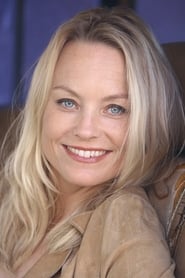 NameRanjani BrowJobADR Voice Casting
NameRanjani BrowJobADR Voice Casting -
 NameTheresa HernandezJobCasting Assistant
NameTheresa HernandezJobCasting Assistant -
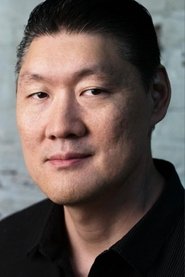 NameStephen NakamuraJobColorist
NameStephen NakamuraJobColorist -
 NameVanessa GalvezJobDigital Intermediate Producer
NameVanessa GalvezJobDigital Intermediate Producer -
 NameCaitlin AthertonJobPost Production Coordinator
NameCaitlin AthertonJobPost Production Coordinator -
 NameJordan JacksonJobAssistant Location Manager
NameJordan JacksonJobAssistant Location Manager -
 NameDavid FieldsJobLocation Assistant
NameDavid FieldsJobLocation Assistant -
 NameJessica ChamberlinJobAdditional Production Assistant
NameJessica ChamberlinJobAdditional Production Assistant -
 NameJeff GalpinJobAnimal Wrangler
NameJeff GalpinJobAnimal Wrangler -
 NameJesse RushtonJobAssistant Chief Lighting Technician
NameJesse RushtonJobAssistant Chief Lighting Technician -
 NameTrang DangJobAssistant Production Coordinator
NameTrang DangJobAssistant Production Coordinator -
 NameScott BalkcomJobDigital Compositor
NameScott BalkcomJobDigital Compositor -
 NameCharlotte GaleJobExtras Casting
NameCharlotte GaleJobExtras Casting -
 NameTauren WrateJobFirst Assistant Accountant
NameTauren WrateJobFirst Assistant Accountant -
 NameKiya MaggioJobKey Rigging Grip
NameKiya MaggioJobKey Rigging Grip -
 NamePeter McGrewJobKey Set Production Assistant
NamePeter McGrewJobKey Set Production Assistant -
 NameSun LeeJobMatte Painter
NameSun LeeJobMatte Painter -
 NameStacey BarberJobPayroll Accountant
NameStacey BarberJobPayroll Accountant -
 NameHenry McGeeJobProduction Assistant
NameHenry McGeeJobProduction Assistant -
 NamePhilip DeVayJobSecond Assistant Accountant
NamePhilip DeVayJobSecond Assistant Accountant -
 NameChristopher L. RobertsonJobTechnical Advisor
NameChristopher L. RobertsonJobTechnical Advisor -
 NameKd AmondJobTravel Coordinator
NameKd AmondJobTravel Coordinator -
 NameDavid WymanJobSound Mixer
NameDavid WymanJobSound Mixer -
 NameTwig LevequeJobAssistant Property Master
NameTwig LevequeJobAssistant Property Master -
 NameJanette LuttrellJobAssistant Property Master
NameJanette LuttrellJobAssistant Property Master -
 NameHarrison HartleyJobGraphic Designer
NameHarrison HartleyJobGraphic Designer -
 NameRussell CulottaJobPainter
NameRussell CulottaJobPainter -
 NameTiffany EastinJobPainter
NameTiffany EastinJobPainter -
 NameTelly OrdoyneJobPainter
NameTelly OrdoyneJobPainter -
 NameLisa KutyreffJobSet Decorating Coordinator
NameLisa KutyreffJobSet Decorating Coordinator -
 NameMatthew L. CrowsonJobSet Dresser
NameMatthew L. CrowsonJobSet Dresser -
 NameSaul CruthirdsJobSet Dresser
NameSaul CruthirdsJobSet Dresser -
 NameGregory T. GeniuszJobSet Dresser
NameGregory T. GeniuszJobSet Dresser -
 NameShelby GillenJobSet Dresser
NameShelby GillenJobSet Dresser -
 NameSeverin LagardeJobSet Dresser
NameSeverin LagardeJobSet Dresser -
 NameJustin MeriwetherJobSet Dresser
NameJustin MeriwetherJobSet Dresser -
 NameGerald PaloneJobSet Dresser
NameGerald PaloneJobSet Dresser -
 NameAshley LambertJobADR Voice Casting
NameAshley LambertJobADR Voice Casting -
 NameJordana SapiurkaJobCasting Assistant
NameJordana SapiurkaJobCasting Assistant -
 NameMichelle M. HebertJobCostumer
NameMichelle M. HebertJobCostumer -
 NameLawrence BellJobCostumer
NameLawrence BellJobCostumer -
 NameLucia ShapiroJobCostumer
NameLucia ShapiroJobCostumer -
 NameJen WassonJobKey Costumer
NameJen WassonJobKey Costumer -
 NameTyler BastiansonJobCamera Production Assistant
NameTyler BastiansonJobCamera Production Assistant -
 NameSidney BriscoJobElectrician
NameSidney BriscoJobElectrician -
 NameRenaldo JacksonJobElectrician
NameRenaldo JacksonJobElectrician -
 NameSamuel KempJobElectrician
NameSamuel KempJobElectrician -
 NameMatthew MendelsonJobElectrician
NameMatthew MendelsonJobElectrician -
 NameRyan ChamberlainJobGrip
NameRyan ChamberlainJobGrip -
 NameRene CrustoJobGrip
NameRene CrustoJobGrip -
 NameTed GreggJobGrip
NameTed GreggJobGrip -
 NameLewis 'Duck' PierattJobGrip
NameLewis 'Duck' PierattJobGrip -
 NameAdam SudtellJobGrip
NameAdam SudtellJobGrip -
 NameKevin LowryJobKey Grip
NameKevin LowryJobKey Grip -
 NameBlaise MillerJobLighting Technician
NameBlaise MillerJobLighting Technician -
 NameLuis MartinezJobLighting Technician
NameLuis MartinezJobLighting Technician -
 NameDaniel McCabeJobLighting Technician
NameDaniel McCabeJobLighting Technician -
 NameMax PatruccoJobRigging Grip
NameMax PatruccoJobRigging Grip -
 NameTonja GreenfieldJobSecond Assistant "A" Camera
NameTonja GreenfieldJobSecond Assistant "A" Camera -
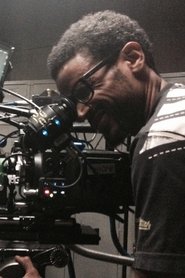 NameHaffe AcostaJobSecond Assistant "B" Camera
NameHaffe AcostaJobSecond Assistant "B" Camera -
 NameJustin CooleyJobSecond Assistant "B" Camera
NameJustin CooleyJobSecond Assistant "B" Camera -
 NameVictor PaguiaJobStunt Coordinator
NameVictor PaguiaJobStunt Coordinator -
 NameThomas KuoJobDigital Intermediate
NameThomas KuoJobDigital Intermediate





